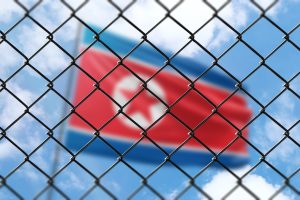Recently, news emerged about a North Korean diplomat stationed in Cuba defecting at the end of last year, sparking speculation about a potential chain reaction of defections among high-ranking North Korean officials. Media reports indicate that more than 20 high-ranking defectors have left since last year, with most being diplomats or trade representatives stationed abroad.
It has also been confirmed that the number of high-ranking defectors in the first half of 2024 matches 2023’s total, suggesting a surge in defections. Of the 196 confirmed defections to South Korea last year, more than half were high-ranking officials. This trend may signal growing skepticism among North Korea’s elite, potentially undermining the foundation of Kim Jong Un’s regime.
The testimony of Counsellor Ri Il-kyu, who escaped from the North Korean embassy in Cuba, reinforces this observation. Ri said that there is a growing desire for reunification among North Korean citizens, with many seeing reunification with South Korea as their only escape from despair. Ri also mentioned the discreet spread of Korean Wave (Hallyu) preferences throughout North Korean society. Residents are captivated not only by Korean dramas and movies but also by the superior taste and quality of South Korean rice.
This situation is reminiscent of the desperate actions taken by East Germans before reunification. Even though East Germany was considered a successful socialist state, residents began boycotting local farm and livestock products after trying West German sausages, leading to emotional outbursts from East German farmers who had to dispose of their own produce. North Korea’s current state, however, is far more dire, with the crisis escalating as even the members of the elite class start to defect.
In discussing the concerns of the elite class regarding their children’s education, Ri Il-kyu mentioned that his desire to provide his children with the freedom to live their lives was a key factor in his decision to defect. This sentiment mirrors that of Thae Yong-ho, who defected from the North Korean embassy in the United Kingdom in 2016, citing his wish to free his children from oppression. This highlights how even in highly controlled states like North Korea, the aspirations of the digitally savvy young generation cannot be suppressed by parents or state authorities. Notably, most of the high-ranking defections have been of younger officials.
This context helps explain Kim Jong Un’s recent declaration of a two-state system on the Korean Peninsula and his focus on a campaign to “erase reunification.” By rejecting the Korean ethnic kinship and labeling South Korea as a hostile adversary, with extreme declarations of intent to conquer South Korea through war, the regime’s actions suggest that the desire for reunification among North Koreans and growing skepticism among the elite are increasingly threatening its security. Moreover, unusual activities of North Korean soldiers, such as building barriers and laying mines near the Military Demarcation Line, could be efforts to prevent mass defections in the military.
The chain of defections among North Korean elites is significant because they play a crucial role within the regime’s power structure. These defectors have vested interests tied directly or indirectly to the Kim regime, and their career advancement is assured. Diplomats hold the highest ascribed status, making their defections particularly noteworthy. Their ability to escape suggests that if diplomats can defect, other influential figures, such as those in the military or security sectors, are also likely to follow suit if given the chance.
Currently, over 34,000 defectors have fled to South Korea, along with tens of thousands of North Korean residents hiding in China. The recent upsurge in numbers – nearly 11,000 North Koreans have fled to the South since Kim Jong Un, the third ruler of the Kim dynasty, took power – indicates that the Kim regime has long lost its legitimacy to represent the country. This is in line with an old Korean saying that “wealth does not last beyond three generations.”
The recent strengthening of ties between Russia and North Korea has heightened the risk of both states becoming complicit in war crimes across Europe and Asia, raising global security concerns. While it is encouraging that the United Nations and major nations are actively seeking solutions, it is disheartening that efforts to rescue North Korean defectors remain largely rhetorical.
Unlike most global refugees, who flee from wars or civil conflicts, North Korean defectors are seeking to escape from inhumane persecution by a personality cult regime. Even after risking their lives to cross borders, they are persistently exposed to dangers and may be forced to forsake human rights to survive. Their plights underscores the urgent need for distinct humanitarian relief from the international community.
For now, the most viable solution should be based on the humanitarian intervention doctrine. It is possible to rescue North Koreans through political and diplomatic engagement without resorting to military intervention. North Korea has long been responsible for war crimes and crimes against humanity, thus meeting the criteria for international intervention according to the United Nations’ “Responsibility to Protect” (R2P) principle. Nevertheless, rescuing North Korean citizens can still be achieved through non-military means.
In this context, I support the proposal to refer Kim Jong Un to the International Criminal Court. Issuing an arrest warrant, similar to the one against Russia’s Vladimir Putin, would be effective. More practically, I recommend actively advocating for the establishment of a committee led by the U.N. or key stakeholders to implement R2P for North Korea. One approach could be for the U.N. Security Council or General Assembly to adopt a resolution and establish an implementation organization under the United Nations. Another option is to form a committee of stakeholders in collaboration with the U.N.
Furthermore, based on the spirit of the agreement to maintain and manage the armistice on the Korean Peninsula, I believe it is crucial to grant refugee status to those escaping North Korea to provide them with new opportunities for life. Additionally, establishing temporary refugee settlements in areas near China and removing barriers to survival should be considered.

































